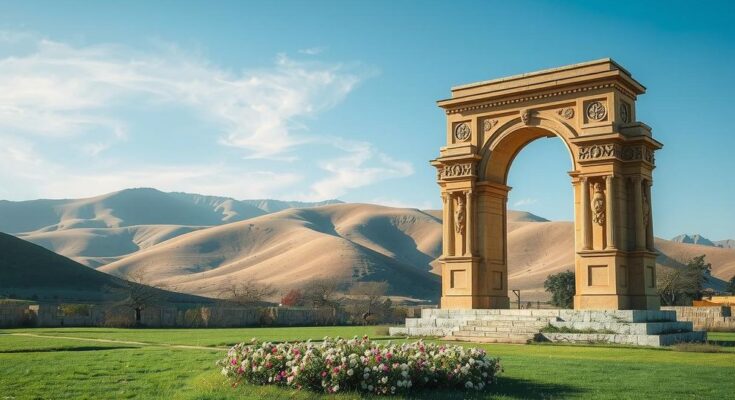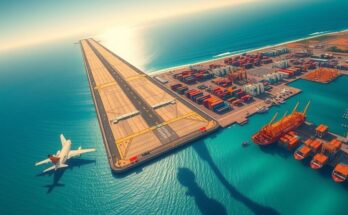The NCRI’s February 5, 2025 report highlights condolences for former Algerian Prime Minister Sid Ahmad Ghozali, critiques of Iranian officials regarding foreign policy, a looming water crisis, a bipartisan U.S. legislative push against Iran’s nuclear ambitions, and ongoing protests for political prisoners facing death sentences, reflecting widespread human rights concerns and political unrest.
On February 5, 2025, the NCRI reported on significant developments in Iran, including condolences for Sid Ahmad Ghozali, former Prime Minister of Algeria, who had been a steadfast ally of the Iranian Resistance. Ghozali’s legacy regarding the Iranian people’s struggle is highlighted, emphasizing his dedication to humanity and ethics during difficult times.
Judiciary Chief Gholamhossein Mohseni-Eje’i criticized former foreign minister Mohammad Javad Zarif’s remarks at an international summit, reiterating that the U.S. represents tyranny and cautioning against internal discord being displayed publicly. Mohseni-Eje’i urged for unity in the face of foreign pressures and insisted on a strong national front.
Iran faces an impending water crisis due to drought and mismanagement, leading to discussions of water rationing. Reports indicate that half of the country’s dams are empty, with inflows decreasing significantly while consumption continues to exceed supply, raising alarms among citizens and officials alike.
In a display of political solidarity, U.S. Representative Jared Moskowitz introduced bipartisan legislation opposing Iran’s nuclear ambitions, calling it an existential threat to U.S. security and global stability. He emphasized the need for a united front against nuclear proliferation, insisting that the U.S. will consider all options to address the growing threat posed by Iran.
The judiciary in Iran sentenced political prisoner Manouchehr Fallah to death under controversial circumstances, including the denial of legal representation in his trial. Fallah was charged with “enmity against God” in relation to actions against regime security, highlighting the regime’s oppressive judicial practices.
On February 4, families of death row political prisoners rallied outside Evin Prison, demanding the revocation of their relatives’ sentences, echoing calls for the abolition of the death penalty. The rally coincides with growing international scrutiny regarding the regime’s execution practices.
Prisoners across Iran are participating in the “No to Executions Tuesdays” campaign, protesting against recent executions. Since January 20, over 30 individuals have been executed, prompting nationwide hunger strikes as advocates seek to end the death penalty and highlight the injustices faced by political prisoners.
Behrouz Ehsani and Mehdi Hassani, both sentenced to death, were recently transferred to the political ward of Qezel-Hesar Prison amid growing protests and calls for their retrial after execution orders were suspended following international outcry.
In Paris, MEK supporters organized an exhibition against the Iranian regime’s human rights abuses, advocating for a rally on February 8, 2025, to continue their efforts in support of the Iranian Revolution. Similar protests occurred in Sweden and Germany, denouncing death sentences issued to political prisoners and demanding their release.
The article discusses recent political, social, and environmental issues in Iran, showcasing the deepening political crisis, human rights abuses, and ongoing struggles against a repressive regime. It reflects on the international response regarding the Iranian regime’s actions, especially in relation to nuclear issues and human rights. The invocation of solidarity among expatriate communities and legislative actions in the U.S. emphasizes the global implications of Iran’s domestic policies.
In summary, the developments reported reflect a country grappling with internal dissent, human rights violations, and environmental crises. The solidarity expressed by international communities and legislators indicates a growing recognition of the challenges faced by the Iranian populace. The ongoing protests underscore a call for justice and an end to oppressive practices, echoing the sentiments of political prisoners and their families.
Original Source: www.ncr-iran.org




